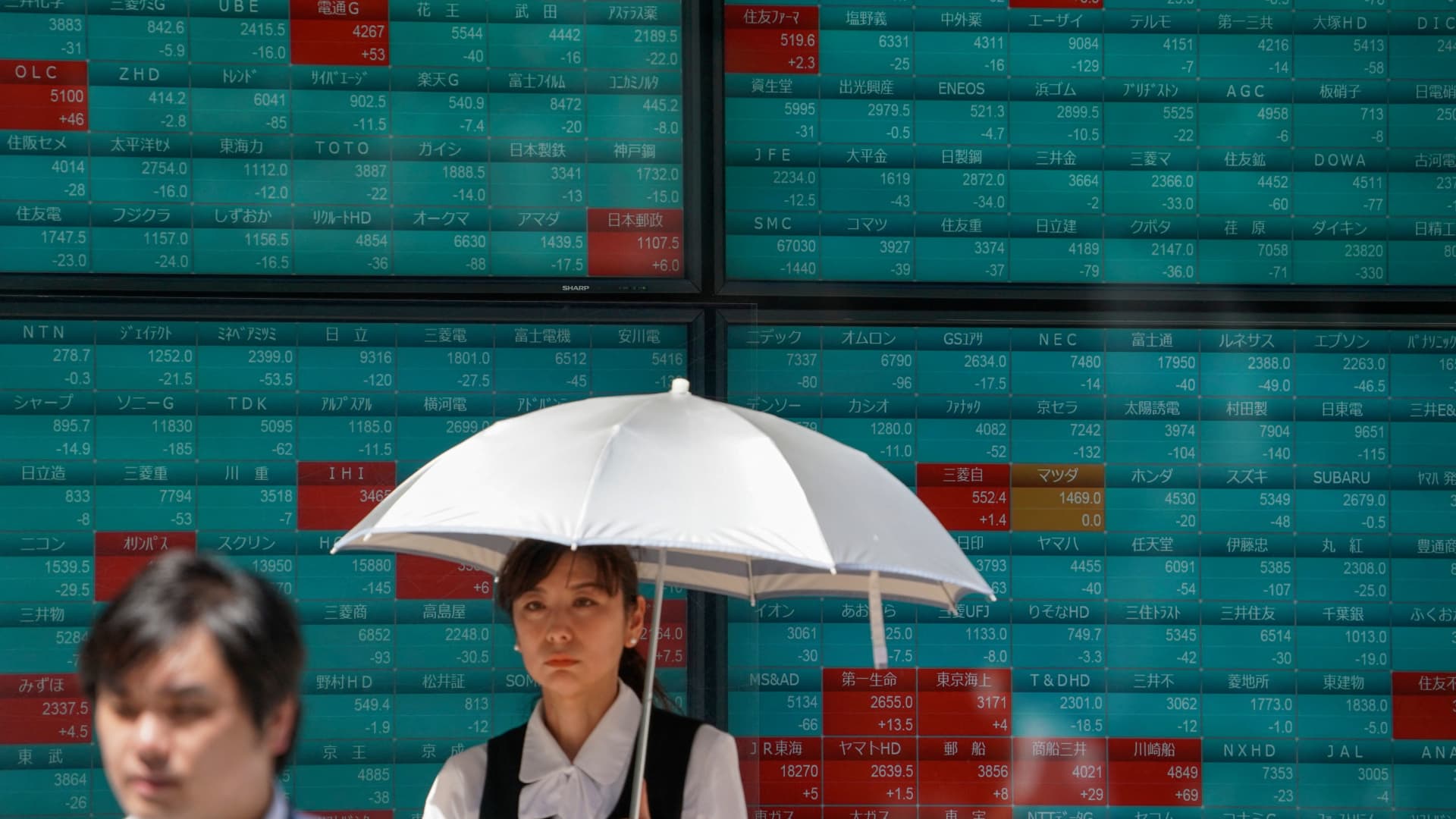A woman walks past an electronic quotation board displaying stock prices of each company listed on the Tokyo Stock Exchange along a street in Tokyo on August 25, 2023. (Photo by Kazuhiro NOGI / AFP) (Photo by KAZUHIRO NOGI/AFP via Getty Images)
Kazuhiro Nogi | Afp | Getty Images
Asia-Pacific markets attempted a rebound on Friday, with Australia stocks bouncing from a one-year low in the previous session as investors continue to digest more inflation data.
Core consumer prices in Tokyo rose 2.7% in October compared to a year ago, government data showed. Economists polled by Reuters expected a 2.5% rise. The core consumer price index for Tokyo includes oil products but excludes fresh food prices.
Australia released its third quarter producer price index on Friday, with the country’s PPI recording a 3.8% growth year-on-year and 1.8% climb quarter-on-quarter. The PPI measures the change in the price of goods sold by manufacturers.
Hong Kong’s Hang Seng index climbed 1.96% in the final hour of trading, leading Asian markets. The mainland Chinese CSI 300 index closed 1.37% higher at 3,562.39 and ended the week with gains.
This comes after state media reported that former China premier Li Keqiang had died.
In Australia, the S&P/ASX 200 traded 0.21% higher, ending the day at 6,826.9.
Japan’s Nikkei 225 rose 1.27% higher, closing at 30,991.69 and the Topix added 1.37%, ending at 2,254.65.
South Korea’s Kospi gained 0.16% to 2,302.81, while the small-cap Kosdaq reversed earlier losses and advanced 0.62%, finishing at 748.49.
The Nasdaq Composite fell deeper into correction territory on Thursday as Meta became the latest tech company to offer a forecast that didn’t quite live up to investors’ expectations.
The tech-heavy index lost 1.76%, closing below its 200-day moving average and ending at 12,595.61. The S&P 500 dipped 1.18%, while the Dow Jones Industrial Average slipped 0.76%.
— CNBC’s Brian Evans and Pia Singh contributed to this report















































